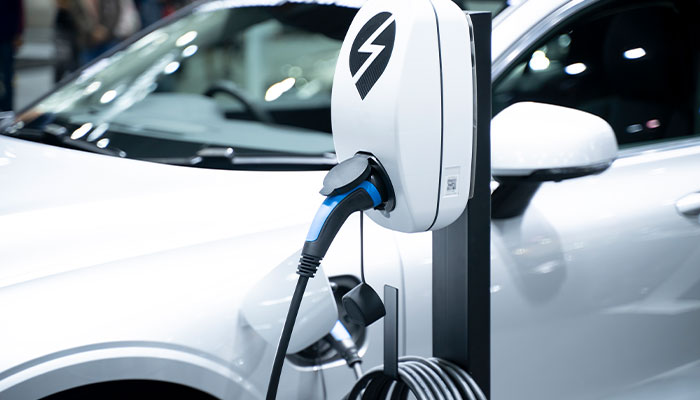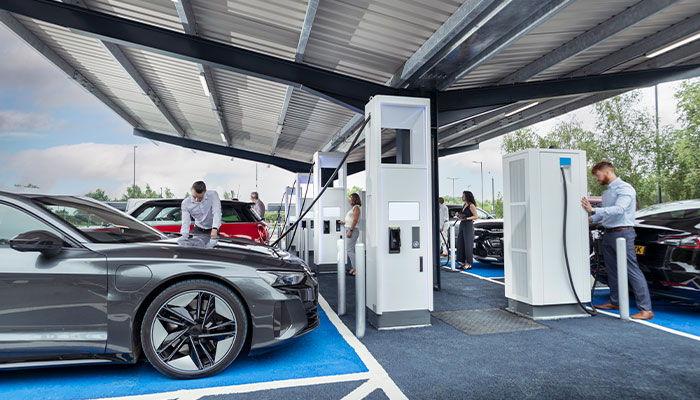One of the major mechanisms that underpins Australia's net zero emissions by 2050 plan is the widespread adoption of electric vehicles (EVs).

Out of reach: A $10,000 reduction in the price of EVs could lead to a dramatic increase in market share, the researchers say.
While government modelling forecasts 90 per cent of vehicles will be electric by 2050, EVs currently comprise only about one per cent of all vehicles in Australia, says energy and environmental economist Dr Marjan Nazifi, a lecturer in the Department of Economics at the Macquarie Business School.
"Currently, Australians have access to about 33 passenger EV models from 13 different car manufacturers, with the price ranging between $40,990 to $176,918," says Nazifi. "There are now around 15 EV models in Australia priced under $65,000.
"Our findings suggest that a $10,000 reduction in the price of EVs could lead to a 17 per cent to 42 per cent increase in market share."
The locations, types and pricing of public charging networks need to be carefully considered, and with these, the impact on the power sector and grid.
The study/data-analysis was part of a Professional and Community Engagement (PACE) unit taught by Nazifi, and grew out of a collaboration with Macquarie Business School industry partner, Snow Hydro.
Nazifi found there was a lack of evidence-backed information on the acceptance of EVs in Australia, and set about guiding her students to produce a research paper looking into the factors which stop consumers from taking up the technology.
"Our project is one of the first studies that implements an econometric (statistical data-based) process to identify the factors affecting EV adoption in Australia," says Nazifi.
"We employed data from 2014-2021, sourced from the Australian Bureau of Statistics, Electric Vehicle Council, Australian Renewable Energy Agency and Transport for NSW."
Consumer characteristics of EV buyers
Nazifi and her team of student researchers looked at the impacts of purchase price, battery performance, driving range, electricity price, fuel price, maintenance costs and the number and cost of charging stations.

Plugged in: The presence of adequate charging infrastructure will be important to EV adoption, the researchers say.
They also considered these factors in the context of government policy incentives (current and proposed) that support the adoption of EVs.
"Our results indicate the high EV purchase price and the number of charging stations are the main impediments," says Nazifi.
"We didn't find electricity prices or fuel prices to be significant concerns but this research was conducted before this recent hike in petrol prices in Australia. Driving range was not considered a major limitation either, but our analysis might underestimate this due to our limited sample size, which mainly focused on metropolitan areas."
Nazifi's team also looked at a number of consumer characteristics – such as education and income – in their model. They found environmentally sensitive consumers and those with higher incomes would be more likely to consider purchasing EVs.
"Interestingly, our findings suggested neither higher education, nor the impact of policy incentives – such as vehicle registration subsidies and free parking – were influential in increasing the demand for EVs.
"The perceived limited driving range of EVs means the presence of adequate charging infrastructure will be important to EV adoption.
"Thus, our findings support the government's recent commitment to spend $250 million on charging infrastructure.
"However, the locations, types and pricing of public charging networks need to be carefully considered, and with these, the impact on the power sector and grid."
Nazifi says the effectiveness of government policies will also depend on the number of EVs we can actually get onto the roads, and this – in turn- will be influenced by the other driving factors, which need to be addressed at the same time.
"The findings of this study have implications for all market participants and policy-makers tasked with designing incentives to encourage consumers to commit to EVs and reduce emissions," she says.
"Studies which investigate and identify factors that contribute to EV uptake are very important because the findings will help policy makers design appropriate strategies to encourage drivers to buy them."
Marjan Nazifi is a Lecturer in the Department of Economics. Her primary fields of research are energy and environmental economics.






